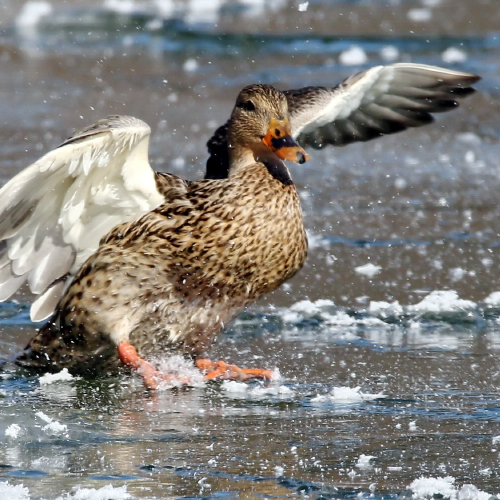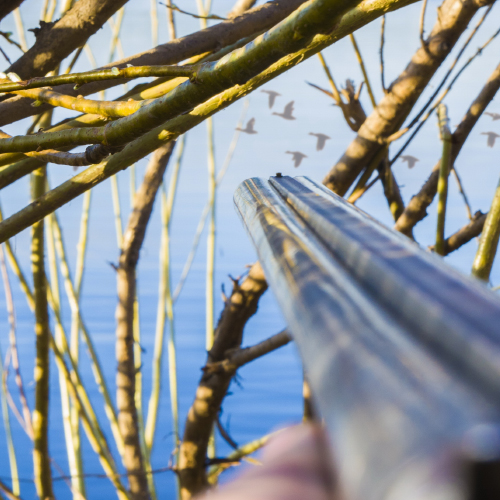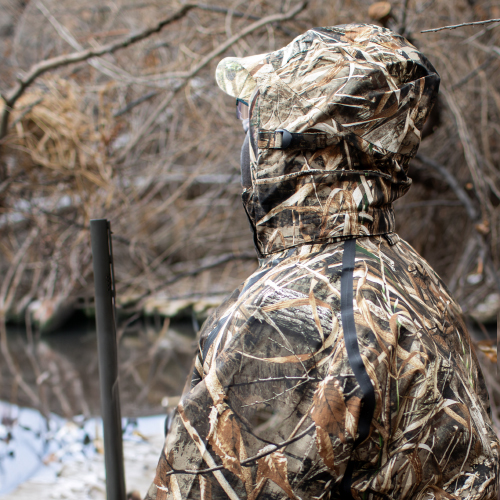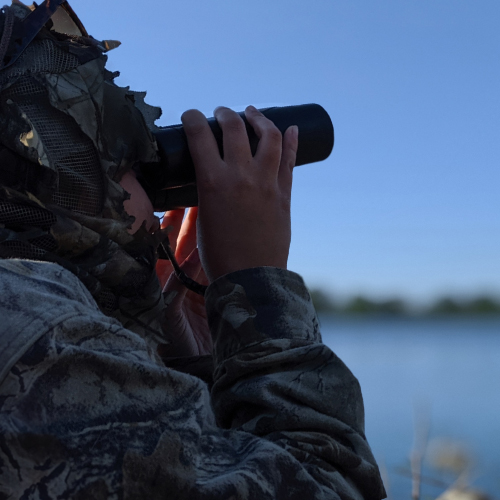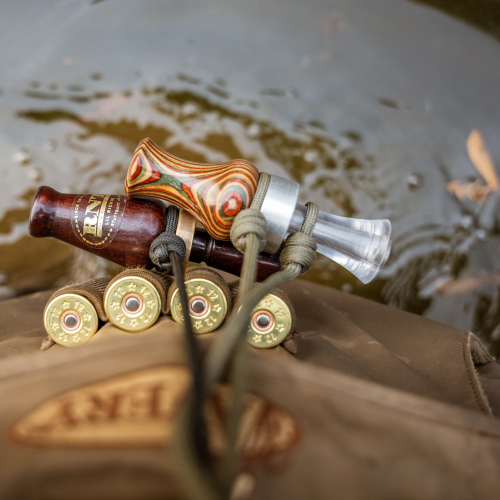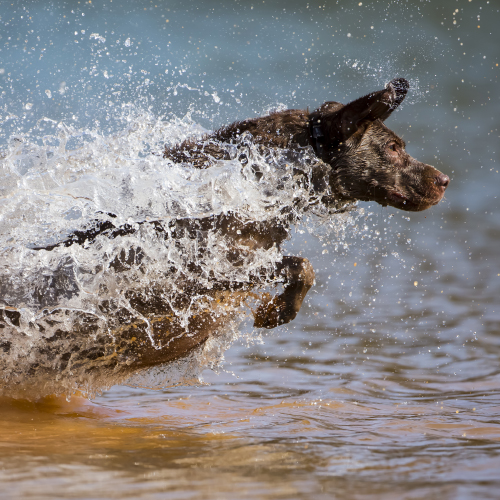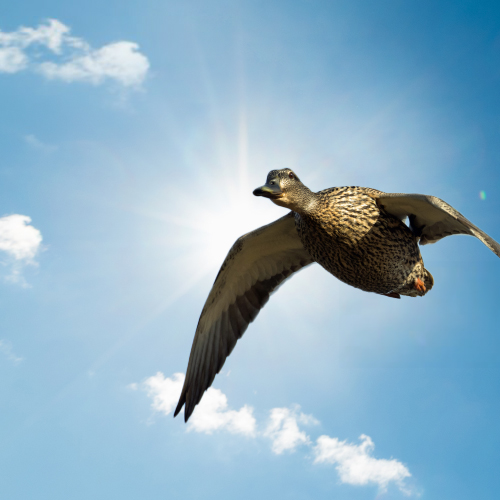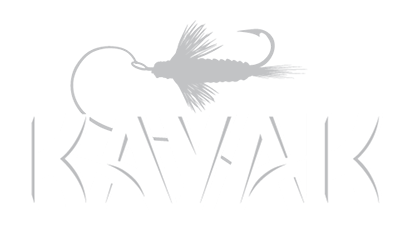Be Ready to Break Ice
Freezing temperatures often mean ice-covered ponds and wetlands, but don't let that stop you. Ducks seek open water to land, so bring tools to create a landing zone. A garden rake works wonders in thin ice—use it to break up large sheets and push them under the remaining ice to keep the surface clear. Your effort won't go unnoticed by the birds.
Patience Pays Off
By this time of year, ducks are cautious and rarely commit to a spread on the first pass. Resist the temptation to "sky bust"—blasting off shots at ducks that aren't quite in range. Instead, let the birds work, even if it takes a few flybys. Your patience will pay off when they finally lock wings and commit to your decoys.
Go Heavy on The Camo
Concealment is everything in the late season. By now, ducks have seen it all and the first sign of anything out of the ordinary will spook them. Brush up your blind with fresh vegetation to match the environment, wear a face mask, and most importantly, stay absolutely still. In the late-season, the smallest movement can be a deal-breaker.
Scout Like a Pro
Scouting is even more critical than ever in winter months. Ducks follow the conditions, so you'll need to stay flexible. After heavy rains, check newly flooded fields. During a warm spell, revisit frozen ponds that might have thawed and drawn birds back. Are there any rivers nearby fed by warm springs? They often hold ducks when everything else is locked up with ice. Keep your binoculars handy and your eyes on the skies.
Cut Back on The Calls
By now, ducks have heard every calling sequence imaginable. Sometimes, the best call is no call at all. Let your decoys do the talking. When you do call, keep it simple—basic quacks and feeding chuckles.
Stay Warm, Stay Sharp, Keep Your Dog Dry
Harsh weather is part of late-season hunting, but it doesn't have to be a survival test. Layer up with moisture-wicking base layers, insulated outerwear, and waterproof gloves. And don't forget about your dog—provide a dry spot out of the freezing water. Comfort is key for extending your hunt and staying focused. If you're looking to outfit your next late season adventure, enter our Dip Into Duck Season sweepstakes to win gear, gift cards and more!
Forget the Early Bird
Don't expect the early morning frenzy of the early season. When the temperatures drop, ducks often wait for the sun to warm up ice-covered feeding areas before flying. Be patient and stay alert for mid-morning action. It's all about timing with late-season birds.
